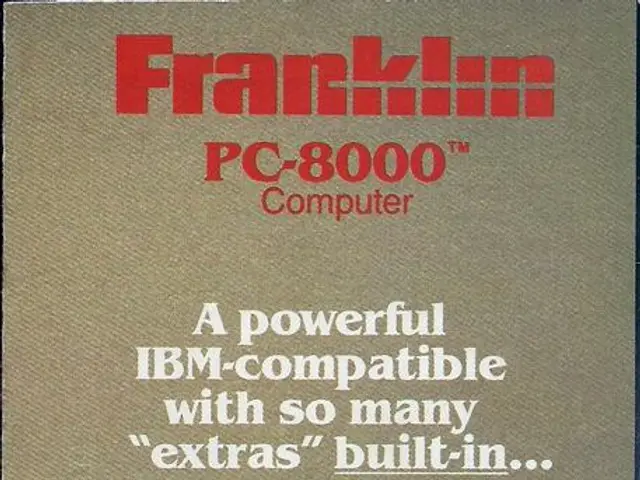Surviving the Ebb: Home Retailers Navigate Turbulent Seas
"Difficult Year Ahead": Casper CEO Predicts Challenges in Home Goods Sector for 2024
The home retail sector rode a wave of growth during the pandemic, but now waters are getting rougher. After seeing sales gains in 2020 and 2021, many home goods companies are grappling with new challenges. Monthly declines are visible in the U.S. Department of Commerce's data, with a dip of 7% in December, according to the latest figures released on Wednesday.
Emilie Arel, CEO of Casper, thinks it's a recipe for a tough year ahead. "It's been a very tough couple years in home," she said during a panel discussion at the National Retail Federation's Big Show. With political tensions, elections and global turmoil, the consumer mind is preoccupied. Already, several brands like Bed Bath & Beyond, Z Gallerie, Mitchell Gold and Bob Williams, Tuesday Morning, and others have fallen victim to bankruptcy. Companies like Purple and The Container Store have reported sales declines in recent quarters and lowered their financial outlooks.
Casper has been battling its own set of issues following a series of changes. Two years ago, the mattress brand was acquired by Durational Capital Management, a private equity firm. Co-founder Philip Krim stepped down as CEO at that time, with Arel taking over. Since then, Casper has made strategic shifts, including selling its Canadian operations, opening new concept stores, and prioritizing profitability.
Arel's appointment marks a trend in the Direct-to-Consumer (DTC) space. Founders are stepping down to make way for leaders capable of driving growth. "Casper had five founders when I came in in 2019," Arel explained. "What they created was a new way to distribute a product that's been around for a long time, and made it exciting to shop for a mattress." But the brand needed to expand its consumer base beyond its core of 27-year-old men living in New York City to attract a broader set of customers.
Meanwhile, Brooklinen, another DTC player, recently saw its co-founder Rich Fulop step down as CEO. Billy May, Urban Outfitters and J. Crew alum, has replaced him. May is focused on maintaining what makes Brooklinen special while pushing for "more accelerated change." Shifting from a "single failure point" to a structure that drives accountability is a complex process, notes May.
Both executives are working on expanding their distribution through wholesale partnerships. Brooklinen has launched Marlow, a new brand, and is testing wholesale through this subsidiary. The company plans to sell Marlow through 1,000 Walmart stores and on Walmart's website starting this October.
Several factors are affecting home retailers, such as tariff increases, supply chain disruptions, and economic pressures Linked to housing affordability. To weather the storm, retailers can invest in supply chain resilience, adopt technological innovation, and focus on providing value and quality to maintain consumer loyalty.
Stay informed. Subscribe to the Retail Dive free daily newsletter.
Struggling to connect with a wider audience, Casper has moved from deriding mattress stores to embracing them. "We were very loud in the beginning about like, 'Mattress stores are terrible,' and 'It's a crappy experience.'" Arel admitted. "But that's where 80% of the mattresses in the U.S. are sold. So we can either get on board or we can be small forever. Those are the choices."
Similarly, Brooklinen, under its new CEO Billy May, aims to balance maintaining its unique aspects while driving change. "Every single decision in a lot of founder-led businesses comes back to the founder," May said. "When your business scales and reaches hundreds of millions of dollars, it's really difficult to continue making every decision."
Many home brands seek wholesale partnerships to expand distribution channels. Casper has established a presence in retailers like Target, Costco, Nordstrom, and even opened a branded pop-up shop within Bed Bath & Beyond.
Sources:
- Consumer Goods Sector Struggles Amid Tariff Increases
- Logistics Challenges Affect Home Good Retailers
- Housing Market Affordability Affects Home Retailers
- Artificial Intelligence in Retail
- Economic Pressure Affecting Housing Market
- The home retail sector, which saw growth during the pandemic, is facing new challenges in 2022, as indicated by a 7% decrease in sales, according to U.S. Department of Commerce's data.
- Emilie Arel, CEO of Casper, views this as a sign of a tough year ahead, given political tensions, elections, and global turmoil affecting consumer mindsets.
- Several brands, such as Bed Bath & Beyond, Z Gallerie, Mitchell Gold and Bob Williams, Tuesday Morning, and others, have already succumbed to bankruptcy, and companies like Purple and The Container Store have reported sales declines and lowered financial outlooks.
- Casper, itself battling internal issues following a series of changes, is prioritizing profitability and expanding its consumer base by embracing wholesale partnerships and opening new concept stores.
- In the Direct-to-Consumer (DTC) space, founders are being replaced by growth-focused leaders, as seen in the appointment of Emilie Arel and Billy May at Casper and Brooklinen respectively.
- Ai (Artificial Intelligence) can help retailers navigate these turbulent times, offering personalized customer experiences to maintain consumer loyalty, as noted in a Forbes article.
- The retail industry also faces challenges such as tariff increases, supply chain disruptions, and economic pressures linked to housing affordability.
- To weather these storms, retailers can adopt technological innovations, invest in supply chain resilience, and focus on providing value and quality, while balancing change with maintaining unique aspects, as exemplified by Casper and Brooklinen.







